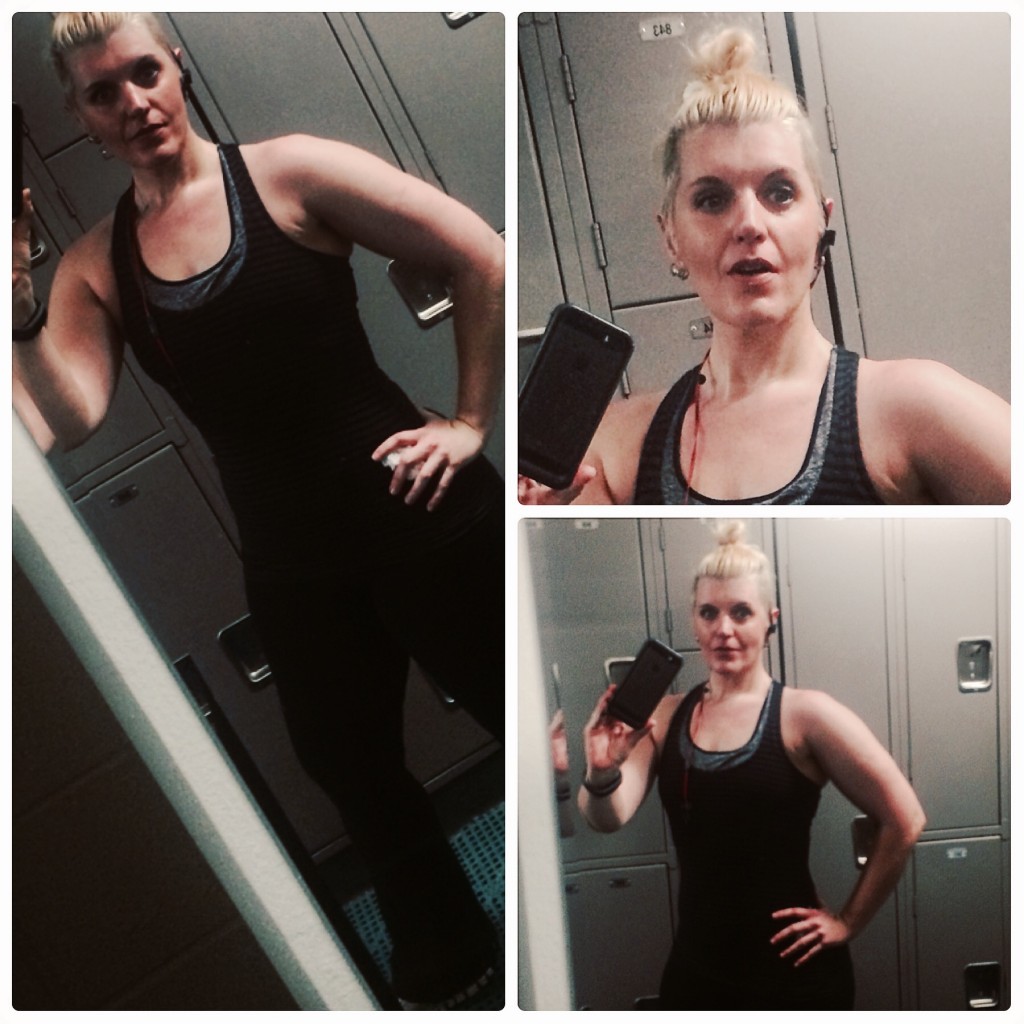We were never told we were loved. The words “I love you” were not part of our family culture.
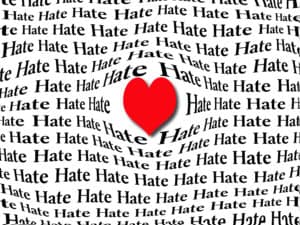 My siblings and I never heard our parents say it to each other, and they never said it to us. So of course, we never said it either.
My siblings and I never heard our parents say it to each other, and they never said it to us. So of course, we never said it either.
I remember trying to say it once in a while. The phrase was wrought with tension, and it was really uncomfortable to try to form the words and get them out of my mouth. I was usually unsuccessful. I would be overwhelmed with the anxiety of it all, and decide not to say it. I remember thinking it was weird that we didn’t ever say it in my family. Once in a while, I’d be at a friend’s house and and the phrase would be used, and I wondered why we didn’t say it. I was aware that it was absent from our family. I didn’t know why. I didn’t know why it was so stressful to try to say it.
Now, it may seem like a little thing. Just a few words. We told each other we loved each other with our actions, right? No big deal.
But the notable absence of those words was actually the tip of the iceberg.
It was one small symptom of a much worse disease. We didn’t say we loved each other, because we didn’t treat each other with love.
My parents ridiculed our feelings, called us names, screamed at us, and told us in countless other ways that we didn’t matter, didn’t deserve compassion and respect, and were not loved. We learned from the day we were born that our parents’ behavior could change on a dime. One minute we were happy and joking around, and then someone would say something wrong and everything would change. It was like Jekyll and Hyde on a family level. We would switch from people who liked each other to people who hated each other in an instant. When they were angry, our parents said horrible things to us. Mean things. Humiliating things. Humiliation was their preferred form of discipline. They treated us as if they hated us. And that was how we learned to communicate. That is what we grew up thinking was normal. For people to spit cruel and venomous things at each other when they were angry. We grew up thinking everyone communicated that way. And for the first few years after I moved out, I treated people that way. I would scream and call names when I was angry. Because I thought it was normal.
And then I caught a break.
In my early 20’s, I got a job as a nanny for a family with two daughters. They were happy. They had healthy communication skills. They parented with love and compassion. The phrase “I love you” flowed like water. No one was stingy with it. Mom and Dad said it as they left for work, when they got home, when they tucked the kids into bed. They said it to each other often, and when there was a conflict they would treat each other with love, even when they were angry. When the kids shared their feelings, their parents listened to them and respected them. They never ridiculed their kids’ feelings, as I was used to in my own family.
I worked for them for 13 years (yes, 13), and was welcomed as a part of their family. They treated me with respect. They valued my time, and said thank you every day. I went on vacations with them, and spent holidays with them. When I needed a place to sleep, their guest room was always there for me. I helped pick out and name their pets. I spent 13 years observing and taking part in this kind, gentle, healthy family. I watched how the mom raised her daughters. I didn’t know it then, but she was modeling healthy parenting for me, and ultimately she shaped the way I parent my kids. You know how people say they turn into their mom as they get older? For me, it’s the mom I nannied for that I’m turning into. I hear her words come out of my mouth, I even absorbed some of her mannerisms.
This family modeled healthy communication for me. I learned that the way my family communicated wasn’t the way everyone communicated. It wasn’t normal. And so I took responsibility for my behavior and did the work to change it.
I learned, through therapy and lots and lots of practice, better ways to communicate. I learned how to speak with love and compassion even if I was angry. It was really hard. Even today, 25 years later, I have to consciously work at it. Especially with my own parents and siblings, who are still stuck in our family’s toxic communication culture. When they begin to speak with hate, I have to resist the urge to do it back, and consciously form the words “I love you” in response to the venom spit at me. Of course, my family doesn’t trust love. But ultimately, I do it for myself, not them. I hold love in front of me like a shield, the way they hold hate. It is SO much better for my mental and physical health to hold that love, even if my family distrusts it.
But with my own kids? The words flow like water. They are told every day that they are loved. Over and over. When they are angry and lashing out, they are told they are loved. When they do something they shouldn’t, they are told they are loved. When they slam the door and yell “I hate you!” they are told they are still loved anyway. And their feelings aren’t ridiculed. When they are anxious, they don’t get called names like ‘Drama Queen’ and ‘crazy’, but rather are offered a hug. Rather then ridiculing them, I tell them explicitly that they don’t deserve to be ridiculed. Rather than call them names, I tell them explicitly that they don’t deserve to be called names. Rather than betraying their trust and trying to humiliate them, I hold their secrets dear, and respect their time and space, and protect them from people who try to hurt them. I am not perfect, though. Like all parents, I still slip up and yell at them sometimes when I am stressed out and overwhelmed. And when I slip up and treat them unfairly, I come back and tell them I am sorry and that they didn’t deserve it, and that they are loved. And they are growing up believing that they are valuable and worthy of love. Something I didn’t get. I was taught that I was shameful and deserved to be treated with contempt, and so I spent many years treating myself that way.
I was so fortunate to be welcomed into a family that modeled healthy and loving communication. It showed me that the way I had been taught was wrong. But it took work, through practice and therapy, to learn new skills.
You, reading this, may not have been gifted a family like the one I was welcomed into. You may only have the model of your own abusive and toxic family. But, I believe that if you are reading this, you recognize at some level that what you were taught was wrong. And so, I encourage you to take responsibility for your actions and become the model you didn’t get. Speak with love when you are treated with hate. It may take help from a Coach or Therapist. Therapy is awesome. My family still treats it with disgust and me like I’m weak and crazy because I go to therapy. But therapy is the tool that has given me to skills to speak with love, rather than hate. The tool that has taught me I’m worthy of love and respect. The tool that’s taught me how to recognize when I’m being treated abusively, and to walk away, or to meet that hate and abuse with love and compassion.
Mostly, though, therapy is the tool that has allowed me to change the script with my own children. The tool that reinforced the lessons I learned by watching the family I worked with. The tool I needed, to put the love I knew I deserved and the love I wanted to give to others into practice.
Therapy is the tool that gave me the ability to say the words “I love you”.
___________________________________________________________________
Published 11/17/2016
By Amber Rogers
Certified Health Coach,Certified Health Educator, Certified Personal Trainer, Behavior Change Specialist
Focusing on recovery from abuse, through a health and fitness lens

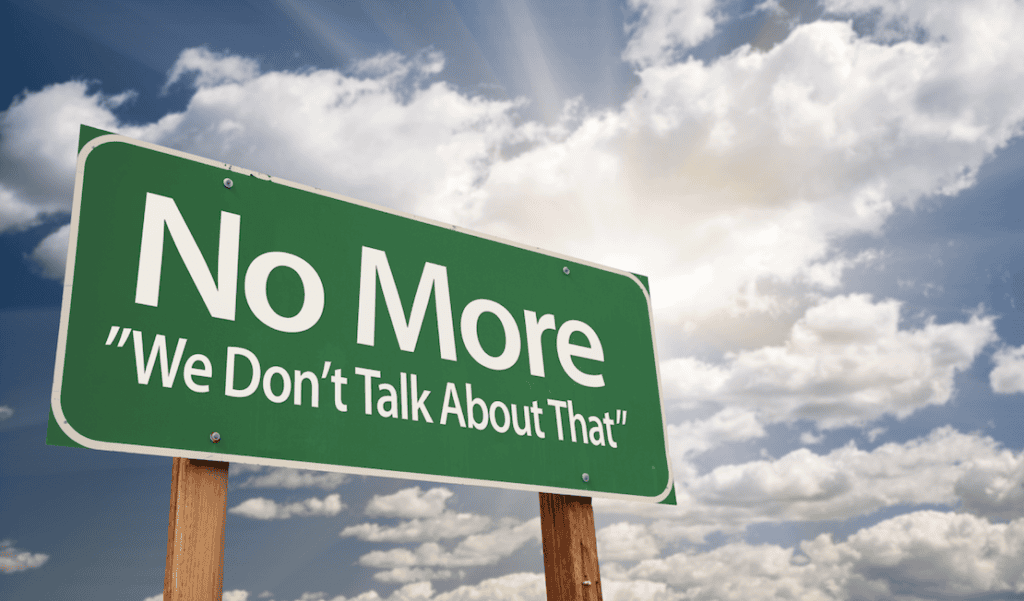
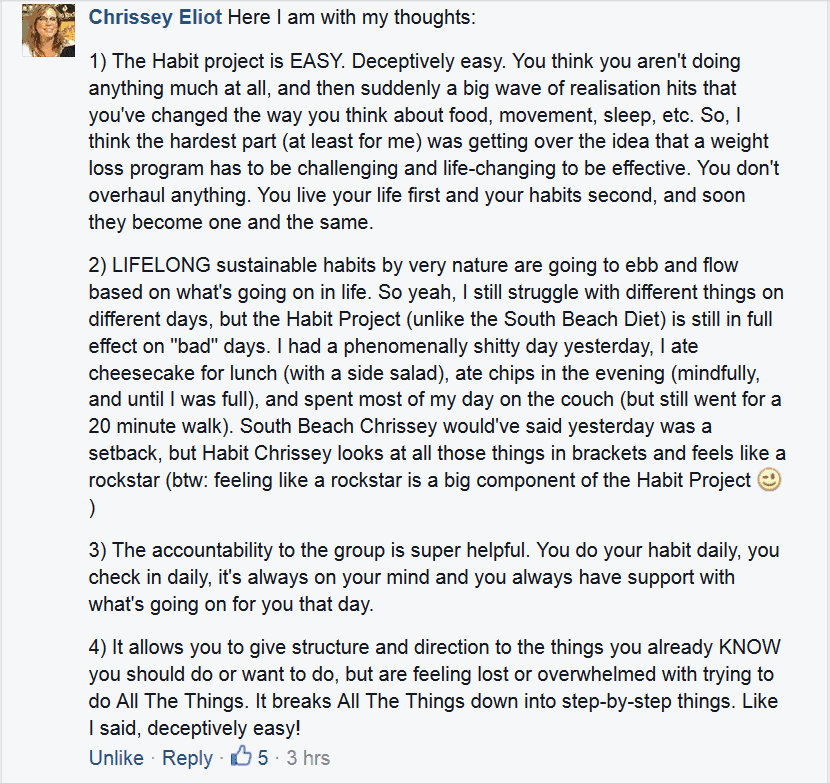
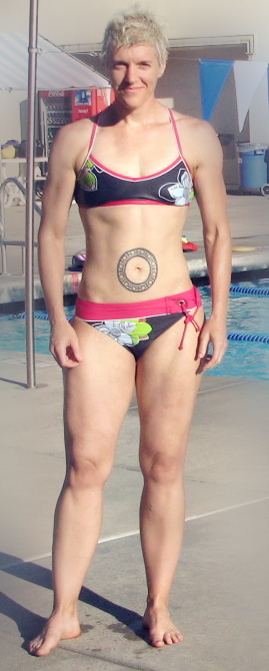
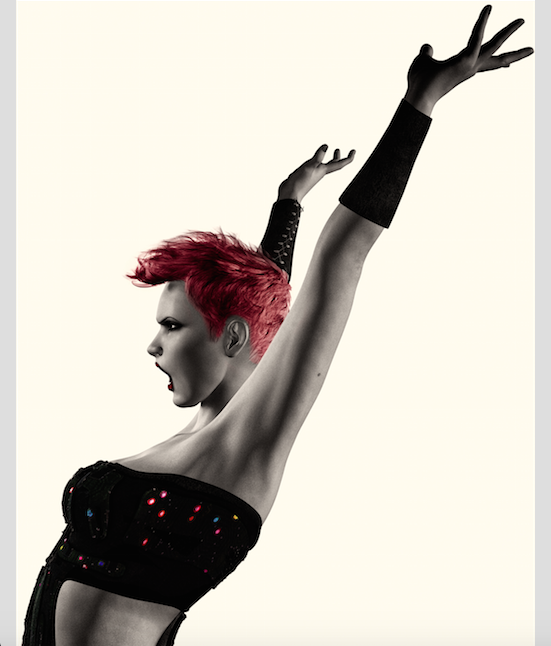 Taking up Space means recognizing your right to exist, have opinions, speak without apologizing, pursue your own goals, and have a body. Any kind of body. A body you don’t apologize for. A body you don’t feel ashamed of. A body you get to dress and decorate and shape and display and use exactly the way YOU want to.
Taking up Space means recognizing your right to exist, have opinions, speak without apologizing, pursue your own goals, and have a body. Any kind of body. A body you don’t apologize for. A body you don’t feel ashamed of. A body you get to dress and decorate and shape and display and use exactly the way YOU want to.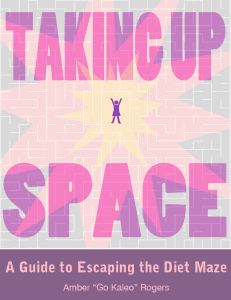 Three years ago when I wrote my eBook “Taking Up Space: a Guide to Escaping the Diet Maze”, I had an idea that I’d like to ultimately create a coaching program to go along with it. “Taking Up Space” isn’t a diet book or exercise program, it’s actually much more than that. It’s the story of all of us – the story of how we’ve been conditioned to make our lives small, to keep our goals and dreams within the confines of our bodies, to expect perfection from ourselves and then punish ourselves most cruelly when we fail to live up to those expectations. to prioritize looking good over being good or doing good or creating good.
Three years ago when I wrote my eBook “Taking Up Space: a Guide to Escaping the Diet Maze”, I had an idea that I’d like to ultimately create a coaching program to go along with it. “Taking Up Space” isn’t a diet book or exercise program, it’s actually much more than that. It’s the story of all of us – the story of how we’ve been conditioned to make our lives small, to keep our goals and dreams within the confines of our bodies, to expect perfection from ourselves and then punish ourselves most cruelly when we fail to live up to those expectations. to prioritize looking good over being good or doing good or creating good. A few months ago I approached Sean, my coaching partner over at The Habit Project', with the concept of a new kind of Habit Project, one devoted to body image rather than nutrition and exercise habits. It took a lot of hashing out and rehashing, but as we zeroed in on a way to make it work, it kind of became clear that what we were talking about creating WAS the Taking Up Space coaching program I’d envisioned all those years ago.
A few months ago I approached Sean, my coaching partner over at The Habit Project', with the concept of a new kind of Habit Project, one devoted to body image rather than nutrition and exercise habits. It took a lot of hashing out and rehashing, but as we zeroed in on a way to make it work, it kind of became clear that what we were talking about creating WAS the Taking Up Space coaching program I’d envisioned all those years ago.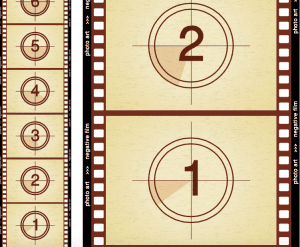 The time is finally right. That coaching program I wanted to build to support Taking uUp Space is being born, at long last.
The time is finally right. That coaching program I wanted to build to support Taking uUp Space is being born, at long last.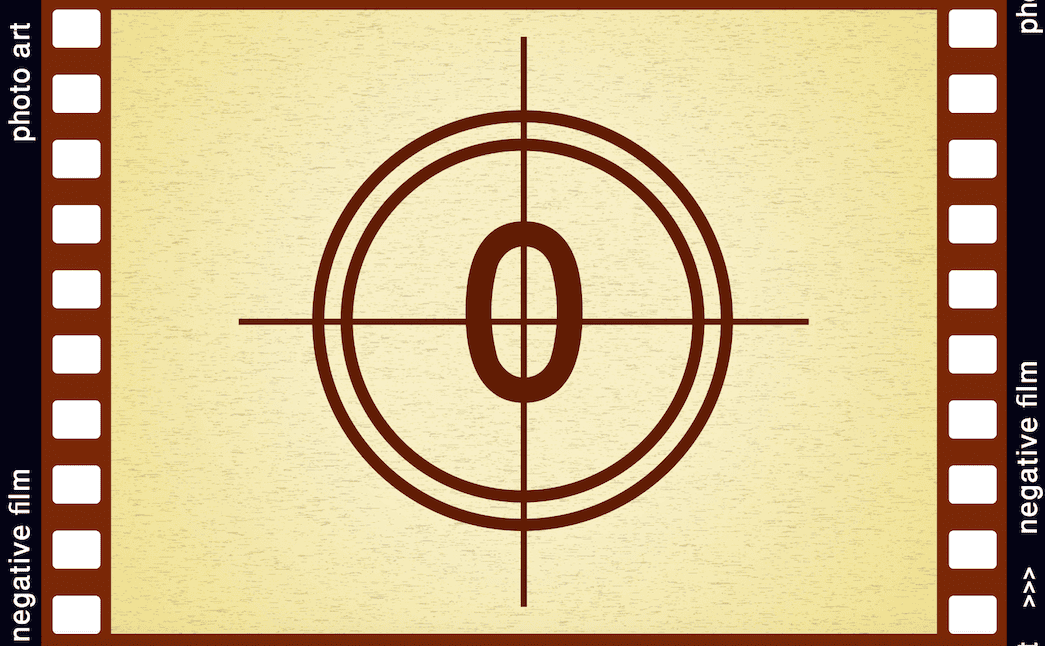
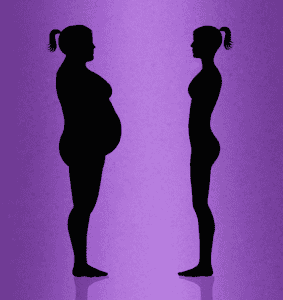 A person. A person who is afraid of food. A person who has eliminated multiple foods and food groups from their diet because they believe those foods are ‘toxic’ or unhealthy or fattening. A person who spends a tremendous amount of their day worrying about food and eating. A person who agonizes over their weight every moment of every day. A person who’s primary focus in their life is making their body smaller and smaller. A person who collects recipes but never prepares them because they are too high calorie, or contain foods they’ve forbidden themselves from eating. A person who starves themselves for days on end, and then binges uncontrollably when their willpower finally fails. And who then heaps shame and punishment upon themselves for being so weak, and goes back to eating as little as possible. A person who collects and reads diet books, and jumps from diet to diet in search of the one that will finally give them the perfect body. A person who exercises to extremes, and injures themselves repeatedly because of it. A person who believes their value as a person hinges upon the size and shape of their body, and who goes to extremes in the pursuit of perfection, always falling short, and believing they are worthless as a result.
A person. A person who is afraid of food. A person who has eliminated multiple foods and food groups from their diet because they believe those foods are ‘toxic’ or unhealthy or fattening. A person who spends a tremendous amount of their day worrying about food and eating. A person who agonizes over their weight every moment of every day. A person who’s primary focus in their life is making their body smaller and smaller. A person who collects recipes but never prepares them because they are too high calorie, or contain foods they’ve forbidden themselves from eating. A person who starves themselves for days on end, and then binges uncontrollably when their willpower finally fails. And who then heaps shame and punishment upon themselves for being so weak, and goes back to eating as little as possible. A person who collects and reads diet books, and jumps from diet to diet in search of the one that will finally give them the perfect body. A person who exercises to extremes, and injures themselves repeatedly because of it. A person who believes their value as a person hinges upon the size and shape of their body, and who goes to extremes in the pursuit of perfection, always falling short, and believing they are worthless as a result.